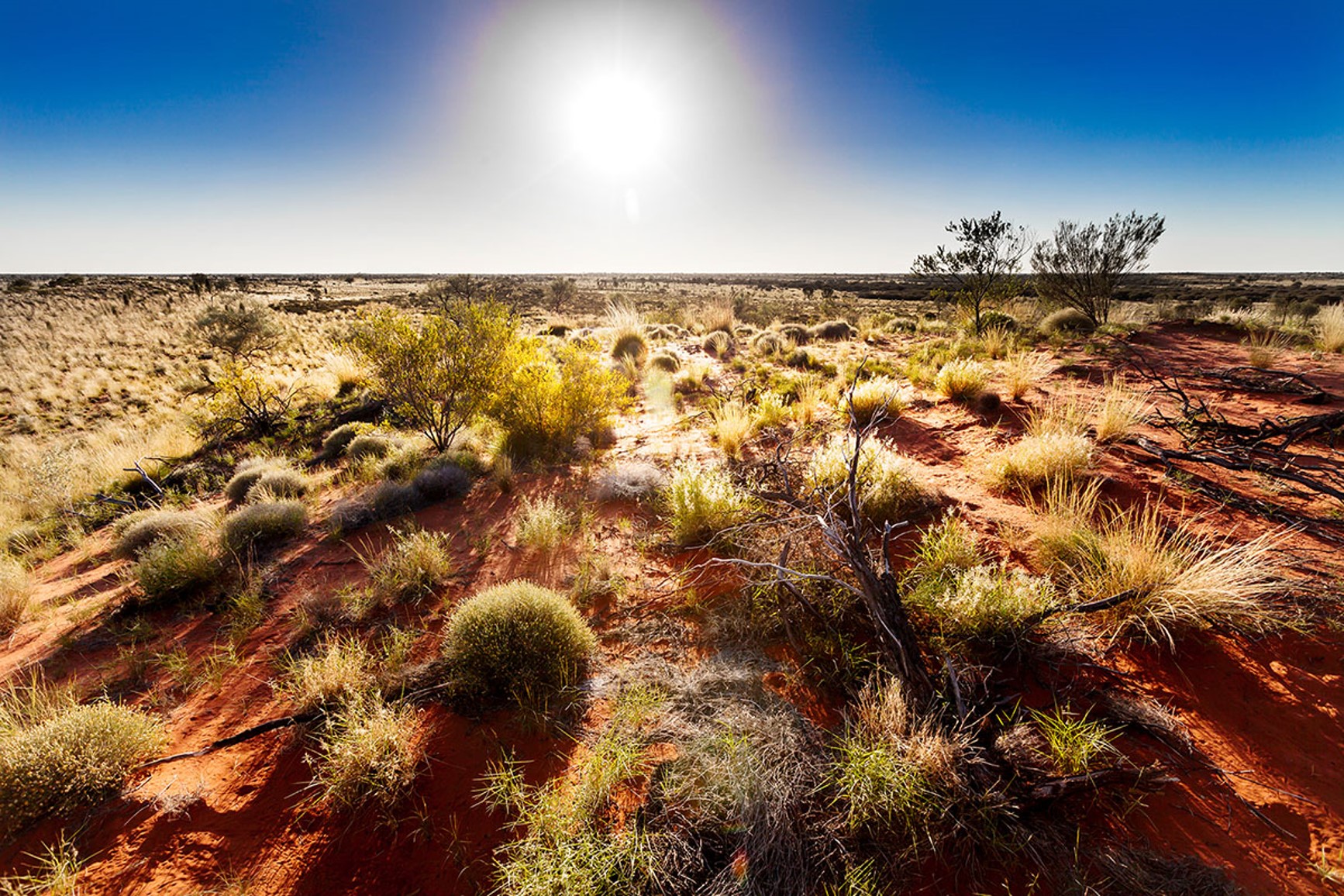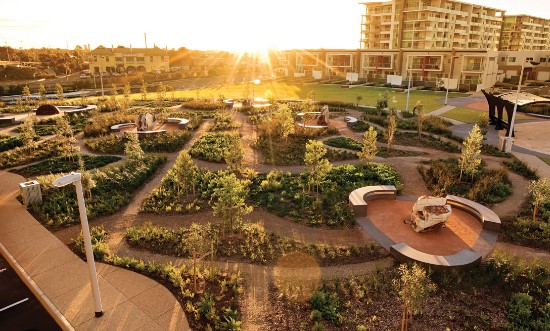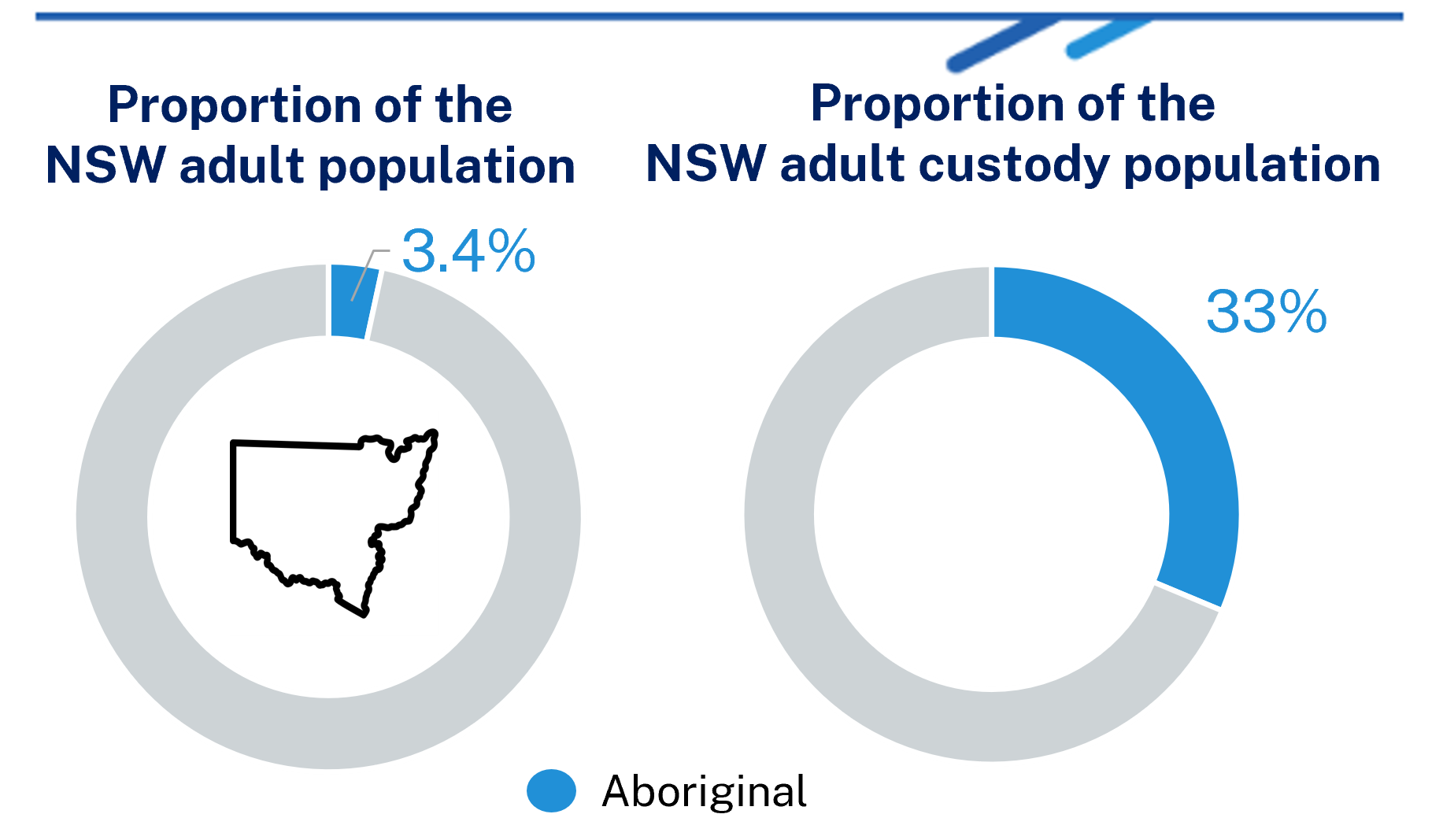Automatic language translation
Our website uses an automatic service to translate our content into different languages. These translations should be used as a guide only. See our Accessibility page for further information.

The Closing the Gap framework is an Australian government strategy that aims to reduce disadvantage among Aboriginal and Torres Strait Islander people. The objective of the National Agreement on Closing the Gap (the National Agreement) is to enable Aboriginal and Torres Strait Islander people and governments to work together to overcome the inequality experienced by Aboriginal and Torres Strait Islander people, and achieve life outcomes equal to all Australians.
The over-representation of Aboriginal Australians in the Criminal Justice System is a matter of long-standing and justified public concern. Latest figures indicate that the Aboriginal imprisonment rate in NSW is nearly 10 times the non-Aboriginal imprisonment rate (Australian Bureau of Statistics 2020). The National Agreement has 17 national socio-economic targets across areas that have an impact on life outcomes for Aboriginal and Torres Strait Islander people. Three of the targets relate to crime and justice.
Statistics representing the progress towards each of these targets can be explored in the sections below with interactive dashboards:



If you're looking for crime statistics that relate to your community we've got some great tools that can help you out:
We'd love to hear from you! If you need specific data or support with making a data request, feel free to reach out to us. We're always eager to find better ways to share data with Aboriginal communities. You can email us at bcsr@dcj.nsw.gov.au.
At BOCSAR, we're working closely with the Aboriginal Legal Service (ALS) to improve access to justice data for Aboriginal people in NSW. Together, we've set up an Aboriginal Governance group to oversee data and research in justice. This group is all about empowering communities, improving data quality, and promoting self-determination through Indigenous Data Sovereignty and Governance.
Here's what we're doing:
By working together, we're setting an example for how Aboriginal and Torres Strait Islander data should be managed and used within the government ecosystem.

Aboriginal people are disproportionately represented at each stage of the Criminal Justice System. Aboriginal people constitute just 3% of the NSW adult population and 8% of the NSW population aged 10-17 years but comprise more than 30% of the adult prison population and 50% of the youth detention population.
Adults - Aboriginal adult over-representation in the justice system (PDF, 4.3 MB)
Aboriginal young people - Aboriginal youth over-representation in the justice system (PDF, 3.9 MB)
Last updated: